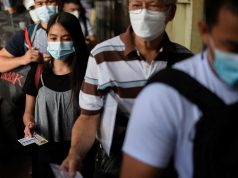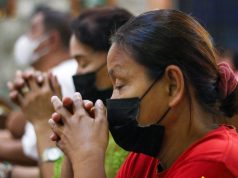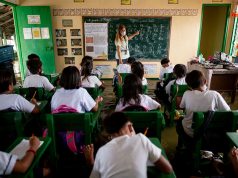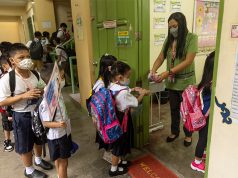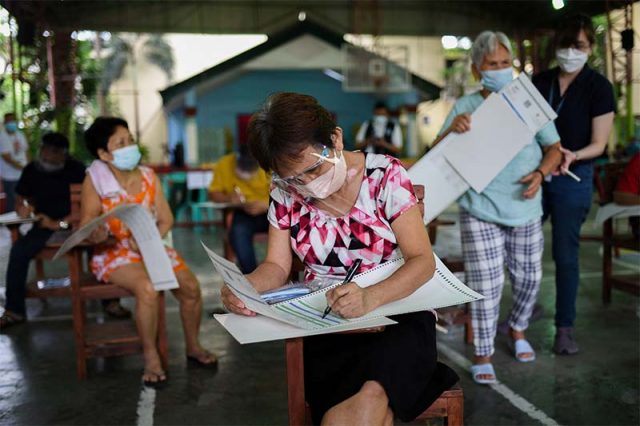
MANILA — The Philippines must bring down COVID-19 cases, hovering at record highs, by April to ensure this year’s presidential election will not become a “superspreader” event, a top government adviser said on Monday.
The country of 110 million people, which is battling one of Asia’s worst coronavirus outbreaks, is holding an election in May for thousands of positions, from president down to hundreds of lawmakers, mayors and governors.
Roughly 67.5 million Filipinos, including 1.7 million overseas, are registered to vote in the elections, which historically have a high turnout.
“We need to push the virus cases down in April so when we have elections in May, people will be safe,” Dr. Teodoro Herbosa, medical adviser to the COVID-19 task force, told Reuters.
“(It is) very important that we are able to tame this virus before May 9.”
Herbosa recommends the election commission expand the use of absentee balloting to include the elderly and people with health conditions.
Plans to extend the voting period to two days were shelved due to budget constraints.
The 2016 election saw a record voter turnout with 82%, with about 44.5 million people casting ballots, government data showed.
Daily coronavirus infections have hit records several times this month, driven by the highly contagious Omicron variant, prompting a tightening of mobility curbs. On Monday, the Philippines started a ban on unvaccinated people from public transport.
READ: Philippines extends Alert Level 3 in NCR until end-January
The country has recorded more than 3.24 million cases and nearly 53,000 deaths overall.
It has so far fully inoculated about half of its population, but many areas outside the capital region are lagging behind. —Reporting by Neil Jerome Morales; Editing by Martin Petty




